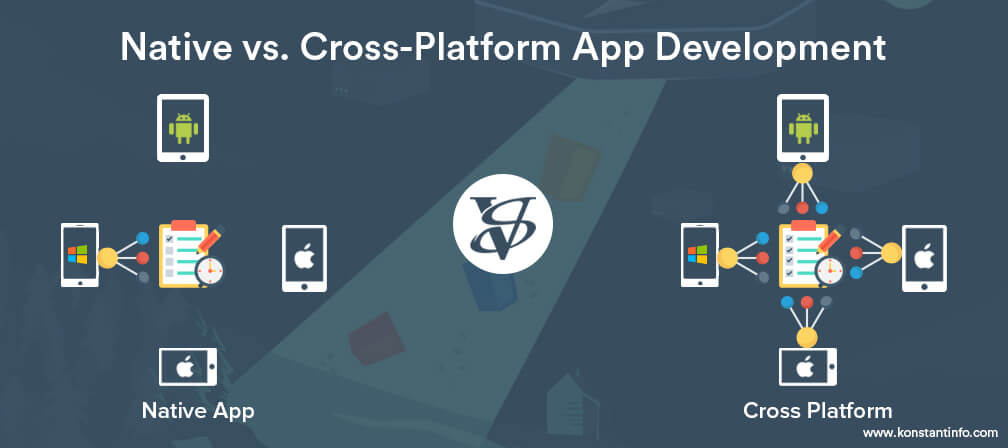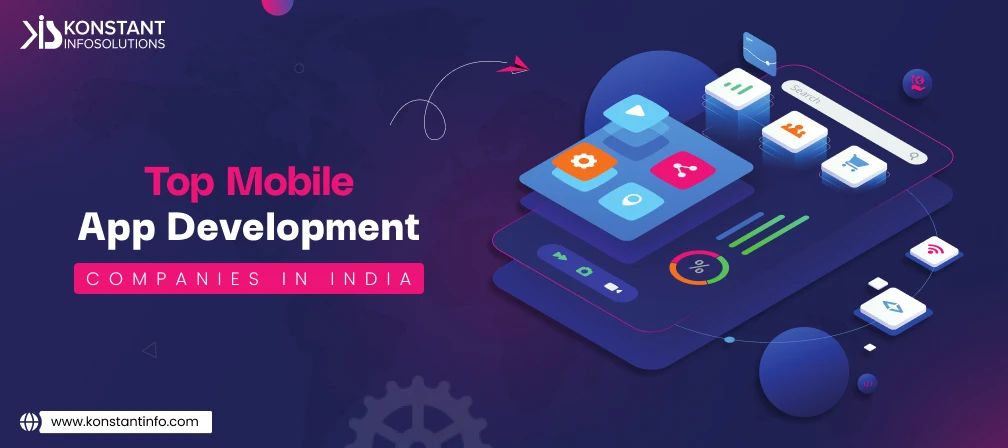
The global mobile app revenue was around $70 billion in 2015 which is projected to almost triple to $190 billion by 2020. That is, as we move further into 2018, we are actually going through one of the most explosive growth phases of the industry and to not explore it would be to miss an opportunity that no business can afford.
While the benefits of having a mobile app can’t be explained in the scope of this article as it requires a more detailed discussion, we will here try to address the second most puzzling question that businesses face- Native vs. Cross-platform applications.
As you may know, when it comes to mobile platforms, there is a virtual duopoly with iOS and Android accounting for over 99% of the devices. Given that both these platforms yield enormous influence and resources, the picture isn’t likely to change anytime soon. So, while native apps (by definition) mean applications built for any particular platform using its particular SDK, we will here keep our discussion limited to these two.
Language
Swift and Objective-C for iOS app development
Java, C++, and Kotlin for Android app development
Framework
Xcode for iOS
Android Studio for Android
In a nutshell, opting for native app development drastically limits the number of tools and technologies that developers can use. However, each of those tools, technologies, libraries, components, or anything else that developers deploy are thoroughly tested by the largest corporations and are highly optimized to deliver best-in-class performance and user experience. Plus, given that the makers of both Android and iOS have ample control over the hardware as well, native apps can deliver features that require deep integration with device hardware like payment features that use NFC, Augment Reality using camera, among many others.
Strengths
Shortfalls
Cross-platform application development is much more diversified that native app development, not just in terms of the myriad of technologies involved, but also the development procedure. Broadly speaking, there are two ways that the cross-platform applications can be created- 1. Using unified APIs, which are essentially the fusion of both Android and iOS APIs and thus, can be deployed on both the platforms; 2. Creating web views of the application and then wrapping them in native components for platform-specific deployments.
For both the cases, the development philosophy remains the same- write once, run anywhere. That is, developers have to create a single codebase, which is then deployed to different platforms with little or no changes.
Language
HTML, CSS, JavaScript, TrueScript, AngularJS, among many others
Framework
Xamarin, Ionic, NativeScript, React Native, PhoneGap, among many others
In a nutshell, hybrid applications can be created using a vast array of tools and technologies that many developers already know, thereby simplifying the learning curve. Plus, most of those tools are generally open-source that also brings the “free” tag and large community support. The most prominent feature of hybrid app development is that since developers need to create a single codebase for all platforms, the billing hours are drastically reduced, bringing down the cost of application as well.
Strengths
Shortfalls
As you may have noticed, the divide between native and cross-platform applications isn’t as prominent as generally believed. That said, in the intense competition these days, even the minutest details have the potential to shape the future of any app and by extension, business. And this is the reason why the decision to choose between the two is inherently embedded in the unique business requirements and there is no absolute winner. So, if you are looking to hire app developers for either of the developments, drop us your requirements and you will be served with the finest industry talent.



Mrityunjay is a content developer at Konstant Infosolutions- a leading mobile app development firm that caters to enterprises of all scales and industries with cutting-edge tech solutions. Being an engineer by education, a reader by passion, and a writer by profession, he finds no topic truly boring, yet nothing seems to content his craving as well- an essence he leaves in everything he writes.
Or send us an email at: [email protected]